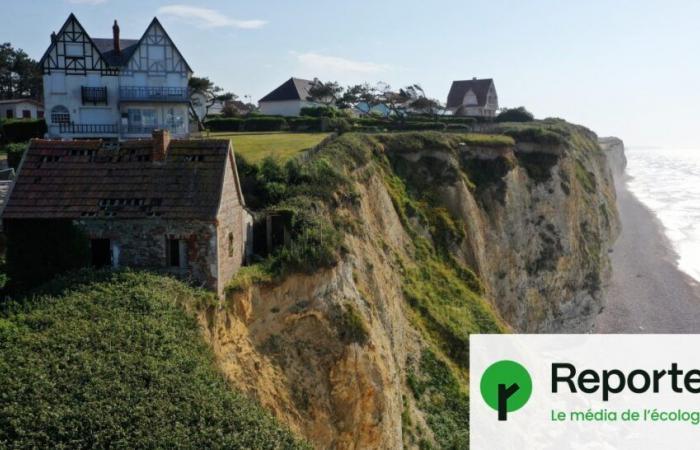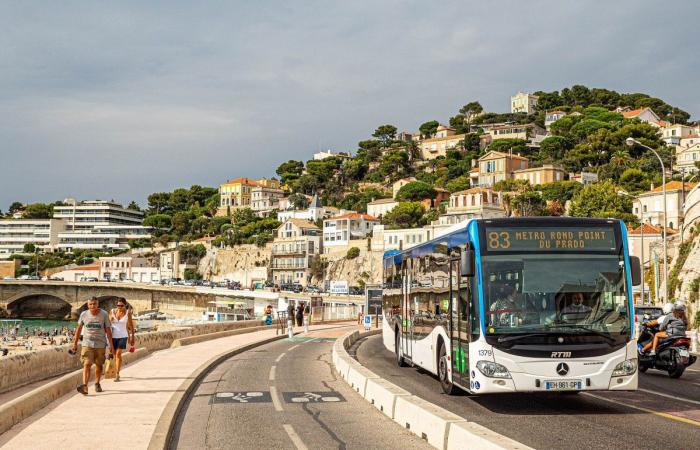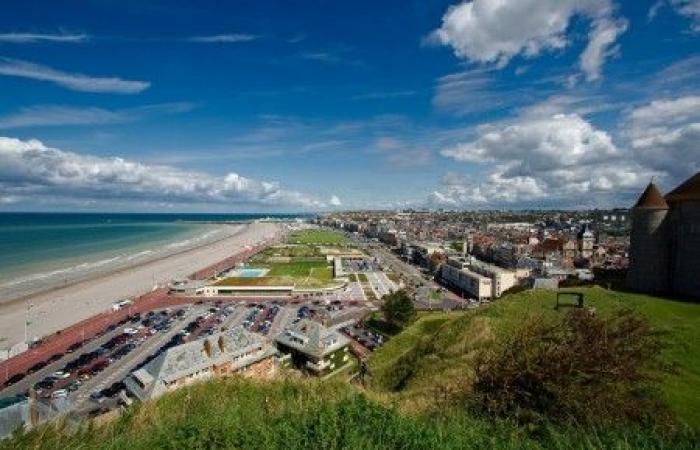Paris, report
Emotion splashes, for a brief moment, on the polite floor of gray heads and suits. With a lump in her throat, a mayor takes the microphone to say her « feeling of helplessness ». This is Gwenola Le Troadec, councilor of Penmarc'h, in Finistère. In four years, his town has lost nearly 10 meters of coastline in places. Nibbled away by rising waters. « We work a lot, we are looking for budget to plant oyats [herbe utilisée pour fixer le sol] but that's not enough »whispers the chosen one.
Like them, many mayors of municipalities of all sizes experience a mixture of anger and exhaustion. At the annual congress of the Association of Mayors of France (AMF), which was held this week in Paris, they even – extremely rare – demonstrated, wearing a black scarf for a few minutes in place of their tricolor ribbon for a photo.
Each in their own way, they are outraged against the unprecedented budget cuts announced for 2025, as part of the finance law whose examination is due to begin in the Senate on November 25.
The government plans to take 10 billion euros from local authorities in 2025, using several levers. The Senate could adjust the amount downwards, but the effort should in any case remain significant, with significant consequences on the ecological transition. Because mayors are on the front line in the shift towards carbon neutrality and in preparing towns and villages for extreme climatic episodes.
An unprecedented purge
« The challenge is of an urgency and intensity like we have never known »warns the socialist mayor of Rouen, Nicolas Mayer-Rossignol, during a workshop organized on November 20 by theAMF on the climate.
For the city of Strasbourg, which declared itself in 2020 in « state of climate emergency »15 million euros are expected to be missing from the 2025 budget. « This is more than we spend annually on early childhood or school meals, indicates Syamak Agha Babaei, first deputy for finance, at Reporterre. This is a reduction that will endanger public services and is being imposed on us without any discussion. »
These cuts combine with numerous cuts which will directly affect the ability of municipalities to act on the climate front.
- The bicycle plan, which devoted 304 million euros to supporting communities for cycle path projects, is canceled ;
- the envelope dedicated to third places is reduced by 80 % ;
- water agencies lose 130 million euros ;
- the transport infrastructure financing agency sees its budget reduced by 700 million euros ;
- the public establishment for ecological transition (Ademe) must lose 35 % of its credits.
Austerity has also led, for several years, to staff cuts in public establishments which provide municipalities with the expertise they need to develop their ecological transition policy.
And yet ! The effort of communities has been spectacular in recent years, according to the I4ce institute. Their climate investments increased by 44 % since 2017. Many ecological measures decided at the national level rest on their shoulders, such as the establishment of « low emission zones » or the principle of « zero net artificialization »among others [1].
Collective denial
This effort is still far from sufficient. I4ce estimates the total investment needs of local authorities alone at 19 billion euros per year between now and 2030. This is more than double what they currently spend.
We must act quickly and strongly, cry out in particular the mayors of coastal communities, who now see the consequences of rising sea levels on a daily basis. If nothing is done, according to state services, 5,200 housing will be destroyed by 2050 in France. Mayors therefore need money to acquire new land and rehouse these future victims. But this is also where land is the most expensive.
Example in Pouliguen, in Loire-Atlantique: according to calculations by the mayor, Norbert Samama, housing threatened by rising water represents 55 million euros. « How to deal with it, knowing that the annual investment of my municipality is only 2.7 million ? »he says.
« If we don't make this effort today, it will be extremely painful. But we are in a collective denial which shocks and worries me. We are alone. It's going to be a drama »alert Stéphanie Doyen, mayor of Saint-Pierre-Quiberon (Morbihan), during a forum dedicated to the removal of the coastline, Wednesday November 20 at the congress of theAMF.
Unlock operating expenses and debt
To give themselves some air, cities and intermunicipalities need accounting measures, seemingly technical but fundamental: for several years, successive governments have been obsessed with the operating expenses of communities. Because they are colossal and increase mechanically due in particular to the evolution of salaries linked to the seniority of civil servants. Municipalities are therefore invited to reduce them, in favor of investment expenditure, which remains limited in time.
This short-term rigor penalizes climate investments. Because developing public transport — the top priority on the climate front — leads to an increase in the budget of intermunicipalities, that is to say operating expenses.
How, with budgetary rigor, to develop public transport, priority of priorities on the climate front ?
Wikimedia / CC BY–on 4.0 / Mohamed SY
Mayors are facing the same dilemma everywhere in France: should they cut their public services or let the debt run? ?
The second option is being considered by a growing number of them. Some demand that investments for the transition be confined to debt « verte » and reimbursed less quickly.
Need for visibility
But to dare to let the debt run, you must be sure of being able to repay. « What we need is visibility over several yearssummarizes Marie Ducami, socialist mayor of Saint-Jacques-de-la-Lande. However, the government lacks consistency in its commitment. The green fund was, for example, launched in 2020, doubled in 2023 and halved again for 2025.
In Strasbourg, « taking action is not an option. We will do it, with or without the State. I prefer to have a financial debt rather than a moral debt towards our children to whom we would leave an uninhabitable territoryassures the first deputy Syamak Agha Babaei. The only thing we need is for the State to stop hindering our action with its accounting vision, above ground and far removed from the reality of the territories. »
legend








